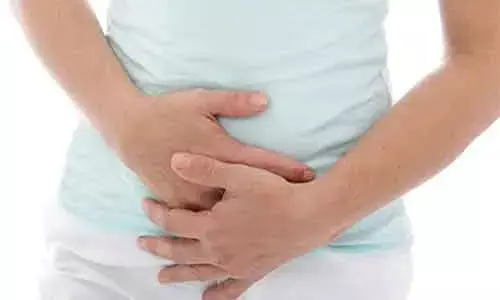- Home
- Medical news & Guidelines
- Anesthesiology
- Cardiology and CTVS
- Critical Care
- Dentistry
- Dermatology
- Diabetes and Endocrinology
- ENT
- Gastroenterology
- Medicine
- Nephrology
- Neurology
- Obstretics-Gynaecology
- Oncology
- Ophthalmology
- Orthopaedics
- Pediatrics-Neonatology
- Psychiatry
- Pulmonology
- Radiology
- Surgery
- Urology
- Laboratory Medicine
- Diet
- Nursing
- Paramedical
- Physiotherapy
- Health news
- Fact Check
- Bone Health Fact Check
- Brain Health Fact Check
- Cancer Related Fact Check
- Child Care Fact Check
- Dental and oral health fact check
- Diabetes and metabolic health fact check
- Diet and Nutrition Fact Check
- Eye and ENT Care Fact Check
- Fitness fact check
- Gut health fact check
- Heart health fact check
- Kidney health fact check
- Medical education fact check
- Men's health fact check
- Respiratory fact check
- Skin and hair care fact check
- Vaccine and Immunization fact check
- Women's health fact check
- AYUSH
- State News
- Andaman and Nicobar Islands
- Andhra Pradesh
- Arunachal Pradesh
- Assam
- Bihar
- Chandigarh
- Chattisgarh
- Dadra and Nagar Haveli
- Daman and Diu
- Delhi
- Goa
- Gujarat
- Haryana
- Himachal Pradesh
- Jammu & Kashmir
- Jharkhand
- Karnataka
- Kerala
- Ladakh
- Lakshadweep
- Madhya Pradesh
- Maharashtra
- Manipur
- Meghalaya
- Mizoram
- Nagaland
- Odisha
- Puducherry
- Punjab
- Rajasthan
- Sikkim
- Tamil Nadu
- Telangana
- Tripura
- Uttar Pradesh
- Uttrakhand
- West Bengal
- Medical Education
- Industry
Long term use of anti acid drug may increase risk of bladder cancer, finds Study

In a large population study conducted by a team of researchers from the Center for Public Health, Queen's University, Belfast, County Antrim, UK, it has been observed that the use of ranitidine particularly long-term use was associated with an increased risk of bladder cancer.
The study is published in the American Journal of Gatroenterology.
Ranitidine has been shown to contain the carcinogen N-nitrosodimethylamine and increase urinary N-nitrosodimethylamine in humans. Cardwell, Chris R. and colleagues investigated whether ranitidine use is associated with increased bladder cancer risk.
A nested case-control study was conducted within the Primary Care Clinical Informatics Unit Research database. There were 3,260 cases and 14,037 controls. Bladder cancer cases were identified and matched with up to 5 controls (based on age, sex, general practice, and date of registration).
Ranitidine, other histamine-2 receptor agonists, and proton pump inhibitors were identified from prescribing records. Odds ratios (ORs) and 95% confidence intervals (CIs) were calculated using conditional logistic regression after adjusting for comorbidities and smoking.
The following findings were highlighted and noted-
- There was evidence of an increased risk of bladder cancer in ranitidine users, compared with nonusers (fully adjusted OR = 1.22; 95% CI 1.06–1.40), which was more marked with use for over 3 years of ranitidine (fully adjusted OR = 1.43; 95% CI 1.05–1.94).
- By contrast, there was little evidence of any association between proton pump inhibitor use and bladder cancer risk based on any use (fully adjusted OR = 0.98; 95% CI 0.88–1.11) or over 3 years of use (fully adjusted OR = 0.98; 95% CI 0.80–1.20).
As a result, the authors concluded that "in this large population-based study, the use of ranitidine particularly long-term use was associated with an increased risk of bladder cancer. Further studies are necessary to attempt to replicate this finding in other settings."
doi: 10.14309/ajg.0000000000001310
Dr. Nandita Mohan is a practicing pediatric dentist with more than 5 years of clinical work experience. Along with this, she is equally interested in keeping herself up to date about the latest developments in the field of medicine and dentistry which is the driving force for her to be in association with Medical Dialogues. She also has her name attached with many publications; both national and international. She has pursued her BDS from Rajiv Gandhi University of Health Sciences, Bangalore and later went to enter her dream specialty (MDS) in the Department of Pedodontics and Preventive Dentistry from Pt. B.D. Sharma University of Health Sciences. Through all the years of experience, her core interest in learning something new has never stopped. She can be contacted at editorial@medicaldialogues.in. Contact no. 011-43720751
Dr Kamal Kant Kohli-MBBS, DTCD- a chest specialist with more than 30 years of practice and a flair for writing clinical articles, Dr Kamal Kant Kohli joined Medical Dialogues as a Chief Editor of Medical News. Besides writing articles, as an editor, he proofreads and verifies all the medical content published on Medical Dialogues including those coming from journals, studies,medical conferences,guidelines etc. Email: drkohli@medicaldialogues.in. Contact no. 011-43720751


